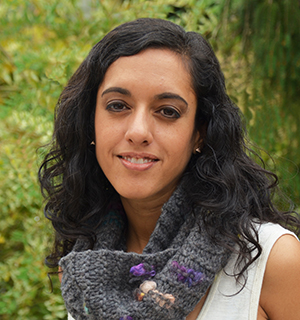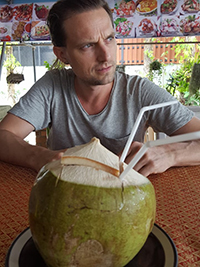Simplicity and Complexity: David Brown in Conversation with Sonnet L'Abbé

Malahat Review volunteer David Brown discusses recurring themes, what draws a judge's attention, and how locale can impact writing with Long Poem Prize judge Sonnet L'Abbé.
Sonnet L’Abbé, Ph.D. is the author of A Strange Relief and Killarnoe, and was the 2014 guest editor of Best Canadian Poetry. Her chapbook, Anima Canadensis, was published by Junction Books in 2016, and won the 2017 bpNichol Chapbook Award. In her next collection, Sonnet’s Shakespeare (McClelland and Stewart, 2019) L’Abbé writes over all 154 of Shakespeare's sonnets. L'Abbé is a professor of Creative Writing and English at Vancouver Island University.
As a Long Poem Prize judge, what will you look for in a winning poem?
I don’t read with a set of “winning” criteria; I’m prepared to be, in fact hoping to be, surprised. I love to be given an experience in language that I haven’t had before. I’m drawn to the way poets attend to the world, to how they can evoke subjective experience from multiple angles at once, and to the way they simultaneously render simplicity and complexity. Poetry is a way of relating to other beings: a poem that stays with me, that offers me a sense of relationship that sounds deeply into my gut and echoes there, is one I want to return to and share. I like to feel woken.
According to your bio, you have lived and worked in various places across Canada. How does your locale impact your writing?
I think that when I lived in Toronto it was easier to believe that my writing spoke broadly to a Canada with multicultural values; now that I’ve lived in BC for years, specifically in Kelowna and Nanaimo, I’m better equipped to see multiculturalism as most often embodied as an urban set of values, to understand myself as a settler in varying relation to the different Indigenous nations on whose territories I’ve lived, and to see what values “marginalized” identities might have in common with people living in rural environments. Doing activist work, and surviving emotionally as a woman of colour in a “proudly redneck” town is a very different set of tasks than being active in an urban centre where I’d have many different groups in which I could participate and find support. Saying something about racial power imbalances, for example, maybe something that practically goes without saying in BIPOC [Black, Indigenous, and people of colour] spaces in Toronto or Vancouver, poses more risk here. I find that in the mid-Island it takes much less to stir people’s reactive sensitivities about white supremacy, the language just isn’t robust here for it, and because I have few local peers who share my experience, I’ve toned down; I’m much more strategic. It affects what I choose to read, what I say at my readings, etc. I do worry that my writing will suffer for it, but then I also see a challenge in constantly rethinking what effective activism looks like, and looking for language that reaches across the barriers of geographic isolation and class difference to speak to people who don’t already think as I do.
Many writers have a recurring theme that surfaces throughout much of their work. Is there a particular theme that you keep returning to? Are there any themes you were once drawn to, but you’ve now outgrown?
I think the theme of being regularly, mundanely excluded from the privilege of white Canadianness has permeated my work, whether I performed it as a palatable lyric meditation or as confrontation and refusal. I’ve written from exclusion for a long time; I’ve had a lot of fuel for critique; I’ve reached for writing as a way to deal with difficult experiences. I’ve written my delight mainly to give people a break from the heavy, and to remind readers that I am more than my angers! But the performance of trauma is something I’m less interested in now, in part because it feels like that’s what’s currently expected of BIPOC writers, in part because I spent six years on a big book, coming out June 2019, that tapped me out on writing about racialized sexual violence, and in part because I continue to heal and learn, and I’m more motivated to explore what I’d create out of joy, connection and self-respect.
What is your workshop process for poetry—do you have a close circle of trusted readers that you turn to with new work, or is it a more solitary practice?
My process has been pretty solitary. I read new work aloud at readings and see if it flies. I send stuff out for publication, and if it gets taken, I know the work is at least communicating to people. I still revise poems after they appear in publications. But given the changes in my motivations that I talked about in the last question, I’m now thinking about how collaboration and dialogue can inform where I go next.
Can you recommend a poet or collection that you’re most excited about at present? What is it about this work that caught and held your interest?
I’m really excited about the work that D.A. Lockhart has been doing; he stories the southwestern Ontario landscape in ways that I’ve never seen before but that make gut sense to me. He’s got a new collection out with Mansfield and more work coming. I’m also jazzed about Shazia Hafiz’s Port of Being – her work manages to be tender and subtle while witnessing our individual investments in the machinations of neo-capitalism. Check her out!

David Brown
* * * * * * * *









